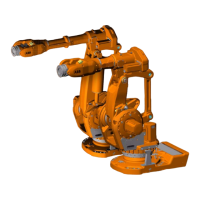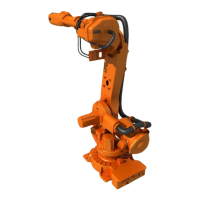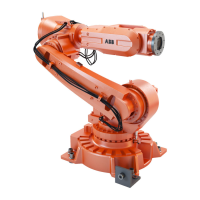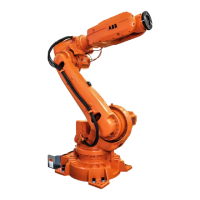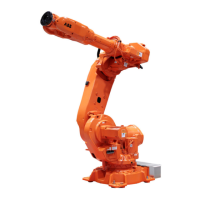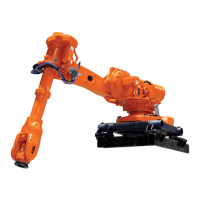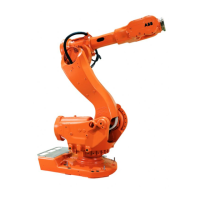Do you have a question about the ABB IRB 6660 and is the answer not in the manual?
Provides a general description of the manual's content and purpose.
Details when and how the manual should be used.
Identifies the target audience for the manual.
Lists the necessary qualifications for personnel using the manual.
Defines the coverage and limitations of the product manual.
Outlines the structure and content of the manual's chapters.
Classifies ABB Robotics user documentation into different categories.
Describes the typical content of ABB product manuals.
Explains the purpose and content of technical reference manuals.
Details the scope and content of ABB application manuals.
Explains how to interpret and follow procedural steps in the manual.
Describes how figures are referenced within the manual's procedures.
Explains how equipment is referenced in the manual's procedures.
Highlights the importance of safety information and where to find it.
Clarifies how illustrations in the manual might be generalized.
Covers general safety aspects and principles for robot operation.
Details specific actions to take in safety-related situations.
Identifies potential hazards and risks associated with robot use.
Explains the meaning of safety signals and symbols used in the manual.
Provides an overview of the installation and commissioning chapter.
Details the procedure for unpacking the robot and related equipment.
Covers procedures for installing the robot at its designated site.
Explains how to limit the robot's movement range for safety or workspace constraints.
Details the process of making electrical connections for the robot.
Provides guidance on starting the robot in low-temperature conditions.
Introduces the maintenance chapter and its structure.
Outlines the robot's maintenance schedule and expected component lifespan.
Details various inspection procedures for robot components.
Covers procedures for replacing or changing robot parts and fluids.
Describes lubrication procedures for specific robot components.
Provides instructions for cleaning the robot and its components.
Introduces the repair chapter and outlines the scope of repair activities.
Covers common procedures applicable to various repair tasks.
Details repair procedures for major robot assemblies.
Focuses on repair and replacement of arm components.
Covers repair procedures related to the robot's frame and base structure.
Details procedures for motor replacement on various axes.
Covers procedures for gearbox replacement on robot axes.
Provides an overview and terminology for robot calibration.
Explains synchronization marks and axis movement for calibration.
Details the process of updating revolution counters for calibration.
Describes the Axis Calibration method and its procedure.
Refers to instructions for the Calibration Pendulum method.
Outlines procedures for verifying successful calibration.
Explains how to check the robot's synchronization position.
Introduces information on taking the robot out of operation.
Provides guidance on environmentally responsible disposal of materials.
Details safety precautions and procedures for scrapping the robot.
Specific instructions for decommissioning the balancing device.
Introduces general reference information complementing procedures.
Lists relevant EN ISO and European standards applicable to the robot.
Provides a table for converting units used in the manual.
Details tightening torques and types of screw joints for the robot.
Provides weight information for components and lifting considerations.
Lists standard tools required for service and maintenance procedures.
Lists special tools required for specific procedures, with article numbers.
Refers to instructions for using lifting accessories.
Indicates where to find spare parts information and exploded views.
Provides article numbers for accessing robot circuit diagrams online.
